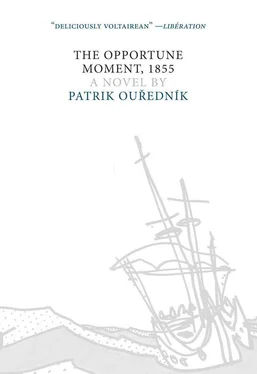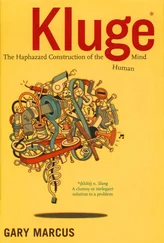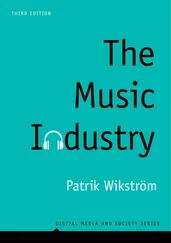Why should I sacrifice to the idols of my time, my generation, my nation? I sacrifice only to one god: my own. You ask, how can I distinguish it from the idols? Quite simply: idols are the work of society, my god was chosen by my conscience. My god does not assign me any obligations other than to sleep, to wake, to work, to eat, to drink, to excrete, to love, to think. To the idols one must sacrifice one’s conscience and one’s will. You will recognize them easily, they declare as a virtue the most wretched quality of which a human being is capable: obedience. And it doesn’t end with that! The sacrifice of your life is not enough for them; they want you to sacrifice the lives of others as well. Here in the name of a bloodthirsty god, there for the honor of the king, today on the altar of homeland, tomorrow in the name of race or civilization. Idols change names the way you change slippers: yesterday one was called Prussia, today it is named Germany; yesterday it required the death of a Bavarian, today it requires the death of a Frenchman. Sometimes it is called Nation, at other times Reason or the Will of the People. The idols have tens and hundreds of names; the most honest of them is What would the neighbors say? They have tens and hundreds of names, however only one desire: to beat you down, to destroy you, to dispatch you, to bring you to naught, to turn you into nothing .
At that time I also began to contribute regularly to anarchist newspapers— Protest and The Atheist —and issued my first proclamation. It ended with the words: “Once we establish our free settlement, we will be able to say that anarchy is neither a just nor an unjust idea, but simply a fact.” Yes, I was in a hurry to put my ideas into practice, to give form to a word which only recently appeared: socialism . Not as it is pursued today by communists, but as a reflection of the origin of the word — socius, partner, comrade, friend, companion , with whom together I face fate. Anarchy in interpersonal relations, love as the expression of a fait social , the abolishment of hierarchy, the denial of God, freedom for all, a common lot — that is socialism. How simple, how innovative! Simple, for we need only free ourselves of our habits and prejudices; innovative, for everything begins anew. To people who say, I wish I could start my life over again, yet not lose my memory of the past, I reply: Become anarchists!
Yes, I was in a hurry to put my ideas into practice. Only the reality of things can persuade those who despite their awareness of the malignancy of the society in which they live are not capable of conceding that another world is possible. I was in a hurry to realize at the expense of propaganda; thus it happened that the people who left for Brazil did not have a clear idea of the project. Many of them, as was gradually revealed, had not even read my articles, or had interpreted them in the light of the political lines of the newspapers which had reprinted them without my knowledge. Filled with clairvoyant disgust at society, I had overestimated those in it; I did not imagine that people who all their lives long had been abused and besotted by society could fail to feel the same deep revulsion. At one point I had had a regular column on cases illustrating the tragic impact of the rules to which society submitted: the suicide of lovers whose surroundings denied them free choice, the murder of a vagrant whom the estate owner believed to be a thief, the strangling of a terrified woman by an officer who feared that her weeping would wake the inhabitants of an enemy village, the violation of a young lady for maintaining a relationship with an enemy soldier — in the nineteenth century! — children sold by their own parents, robbery, rape, and torture in wars and insurrections, corrupt courts, financial frauds, political hypocrisy. I had assumed it would be enough to point out the mechanisms of evil, and underestimated the slowness with which people — especially women — shed their prejudices. Yes, Madam, the greatest enemy of everything new is woman, bound by the mental chains of matrimony or whatever other trap in which she seeks the feeling of safety, protection from the uncertainty of centuries and millennia of belittling existence.
This is also why the first and most important rule to which we must accede if we wish to overturn the order of things is the freedom of women. Woman’s standing in society is the most monstrous demonstration of men’s smallness and foolishness — and women’s as well. Man scorns woman deeply, and the acts of courtesy which he shows her are the expression of a hypocrisy which has as its goal to conceal the slavery in which he keeps her. The ideal woman? Bon mots and tittering turns of conversation, to cover up her dullness and intellectual impotence, embroidering family initials on handkerchiefs and singing at the piano, because after all even she has the right to amusement — why, from time to time, even a dog is allowed to bark with no apparent reason. Once or twice a week we may take her out in the streets; and there, in the anonymity of the crowd, let her go ahead and parade her canary-like incomparability, let her shimmy and shake, our flunky, our prettified lackey, a savage whom we keep for our amusement. Her clothing is the denial of common sense, fashion makes of her a primitive social creature from a colonial exhibition: feathers on her head, golden amulet around her neck, face sprinkled with magic powder, painted lashes, earlobes laden with metal hoops, feet misshapen by ritual footwear, pores cloyed with the most ill-sorted oils and scents. And in all this she takes pride: in the brains of slaves vanity is the manifestation of social existence.
And I speak only of Europe! Look at other worlds, look at Africans, look at American Mormons, look at Muslims! A man has several wives, but a woman only one husband. Polygyny yes, polyandry no. A father has the legal right to kill his daughter if she displeases him, but not his son; he may kill his sister if she displeases him. Infidelity is punished by stoning, as custom demands. Walk through the streets of Tunisia! A woman in public may not expose so much as a centimeter of her body, not a single hair, not a single flash of the eyes. Veiled from head to toe she hurries through life like a disgrace to the human race which must be buried while still alive. Streets full of walking mummies! A veil and several layers of fabric protect her from rotting, and still she must cook and bear children for her man. And in all this she takes pride: in the brains of corpses mummification is the ultimate form of visibility. And in all this her man takes strength and delight: the more dead my woman, the greater my god!
I do not demand the equality of women; I am talking about freedom. Equality is nothing but another reorganization of the society of men, a new reform: let us allow women to be like us, let us allow them to be murderers, strategists, politicians, irresponsible and selfish beings longing for power. Tell a woman that she may kill, press a rifle into her hand — and she will become as bloodthirsty and contemptible a creature as man. Equality for women? Our erstwhile canary becomes a sheep. She ceases to warble and begins to bleat; then will we be closer in our dullness and unfreedom. This is what is called for today by those who subscribe to the new doctrine, the new idol, which they call feminism.
No — let us not give women equality, let us allow them freedom. The day when woman becomes free will be the dawn of a revolution whose consequences we can hardly imagine. Free woman means the end of religion, of which in her nonfreedom she has been the most fervid supporter. Free woman means the end of wars which mow down men. Free woman means the end of a society in which the strong oppress the weak, the end of prostitution, physical or moral, the end of violence. Free woman is the harbinger of a new humanity, the first step toward the triumph of humanity over man.
Читать дальше












